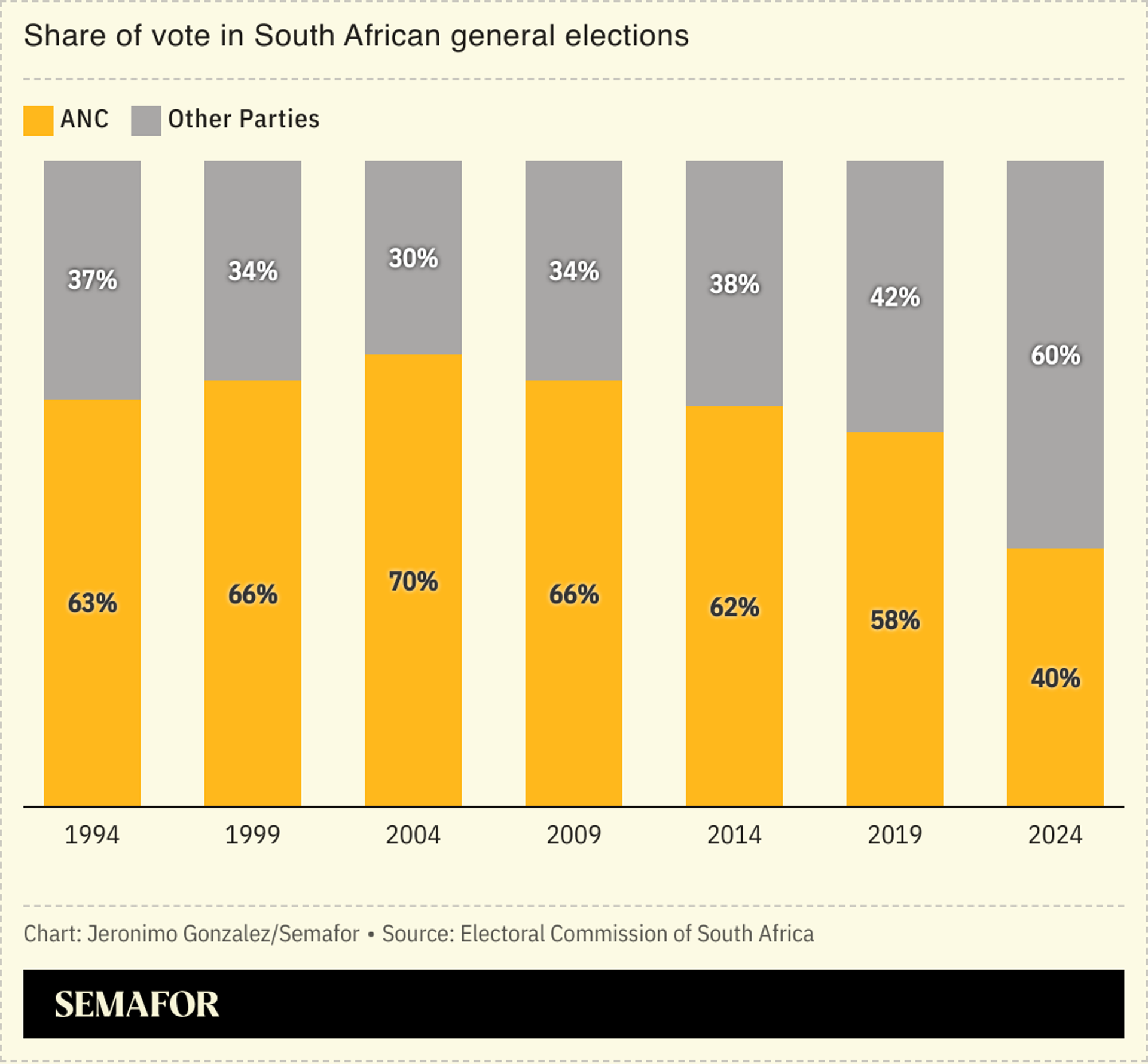The News
The African National Congress expelled former South African President Jacob Zuma after he backed a rival party that cost the ANC its parliamentary majority for the first time since the end of apartheid.
“Former president Jacob Zuma has actively impugned the integrity of the ANC and campaigned to dislodge the ANC from power, while claiming that he had not severed his membership,” the ANC said in a statement Monday.
The ANC won 40% of the vote in June’s election, down from almost 60% in 2019, forcing it into a broad coalition government comprising cabinet members from seven parties.

SIGNALS
ANC’s ‘dithering’ on Zuma may have cost it the election
Zuma’s new party ran on a populist platform of “grievance politics” that helped to deny the once-dominant ANC an absolute majority, The New York Times wrote. The ANC may have waited until after the election to expel Zuma to avoid the risk of vindicating his image as a “political martyr.” But some ANC figures believe the delay cost the party votes: “It showed the kind of dithering and hesitancy that was damaging,” the deputy president of the ANC Veterans League told SABC News. That Zuma was elected as president 15 years ago, while facing criminal charges, also reflected poorly on the “caliber” of the ANC post-apartheid, he added.
Zuma perceived by South Africans as ‘problematic but beloved’ family member
Zuma’s legacy after spending nine years as president may have also cost the ANC significantly: Ahead of the election, many party loyalists felt disillusioned by financial mismanagement and corruption allegations that “peaked” under his tenure, Bloomberg reported. “Few will mourn the premature end of the presidency of a man whose middle name, Gedleyihlekisa, translates from Zulu as “one who smiles while causing you harm,’” The Economist wrote in 2018, after Zuma resigned to avoid being ousted. In this year’s election, however, he took the role of a “problematic but beloved” family member and “antihero” for millions of South Africans, Foreign Policy wrote.

